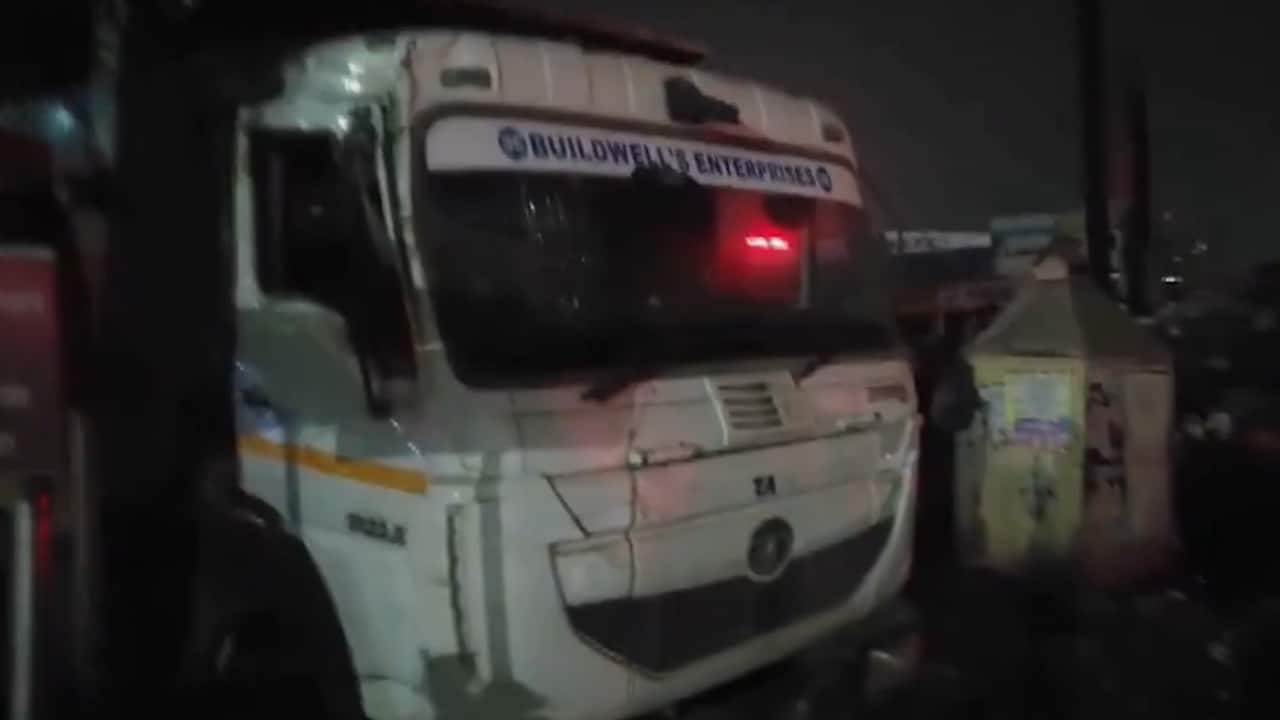 |
|
The tragic incident in Pune, India, serves as a stark reminder of the devastating consequences of drunk driving. A severely intoxicated truck driver, behind the wheel of a dumper belonging to Biltways Enterprise Company, lost control of his vehicle in the early hours of Monday, resulting in the deaths of three individuals and injuries to six others. The victims, a family of migrant workers from Amravati, were asleep on a footpath near Kesnand Phata when the dumper veered off the road and onto the pavement, crushing nine individuals who were in its direct path. The sheer force of the impact underscores the immense danger posed by impaired drivers, highlighting the urgent need for stricter enforcement of traffic laws and public awareness campaigns to combat this pervasive issue.
The loss of life is particularly heartbreaking given the victims' vulnerability. Two young toddlers, Vaibhavi Pawar (1) and Vaibhav Pawar (2), perished alongside their 22-year-old relative, Vishal Pawar. The image of a sleeping family, seeking refuge on a footpath, being brutally struck by a speeding vehicle, paints a harrowing picture of the harsh realities faced by many vulnerable populations, particularly migrant workers who often lack access to safe and affordable housing. The incident raises serious questions about the adequacy of infrastructure and safety measures in place for pedestrians, especially those forced to reside on footpaths.
The immediate aftermath of the accident saw emergency responders rushing the injured to Sassoon General Hospital for treatment. Meanwhile, police swiftly apprehended the intoxicated driver and launched a thorough investigation. The preliminary findings confirm the driver's impairment, emphasizing the crucial role of alcohol in this catastrophic event. The case highlights the need for robust legal frameworks that hold drunk drivers accountable for their actions, coupled with effective measures to prevent similar tragedies from occurring in the future. The investigation is ongoing, but initial reports suggest that the driver will face serious charges, potentially including culpable homicide, as his actions directly led to the loss of innocent lives.
This incident is not an isolated case. The article also mentions another recent incident in Mumbai where a four-year-old boy was killed by a speeding car driven by a 19-year-old. This underscores the wider problem of reckless driving and the importance of comprehensive driver education, emphasizing not just the technical skills of operating a vehicle but also the profound responsibility that comes with it. Both incidents, though geographically distinct, share a common thread: the devastating consequences of failing to prioritize road safety. The recurring nature of such accidents necessitates a multi-pronged approach involving stringent regulations, effective enforcement, and heightened public awareness to cultivate a culture of responsible driving.
The Pune incident, in particular, raises questions about the broader societal context. The fact that a family of migrant workers were forced to sleep on a footpath highlights the systemic inequalities and lack of affordable housing that push vulnerable populations to live in precarious situations. This underlying societal problem needs to be addressed alongside the immediate issue of drunk driving, as tackling the root causes of such vulnerability is crucial to preventing future tragedies. The incident demands a comprehensive response that extends beyond simply punishing the driver; it calls for a systemic review of road safety infrastructure, stricter enforcement of traffic laws, improved support for vulnerable communities, and a sustained commitment to fostering a road safety culture in India.
In conclusion, the horrific accident in Pune underscores the devastating consequences of drunk driving and the urgent need for collective action to prevent similar tragedies. Stricter enforcement of laws, improved road safety infrastructure, enhanced public awareness campaigns, and addressing the underlying societal factors that contribute to vulnerability are all essential components of a comprehensive strategy to mitigate the risk of future incidents. The loss of three lives, including two innocent toddlers, should serve as a powerful impetus for change, prompting both individual and systemic reforms that prioritize road safety and protect vulnerable members of society.
